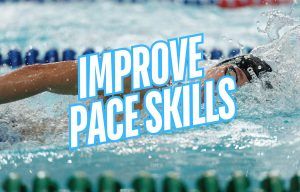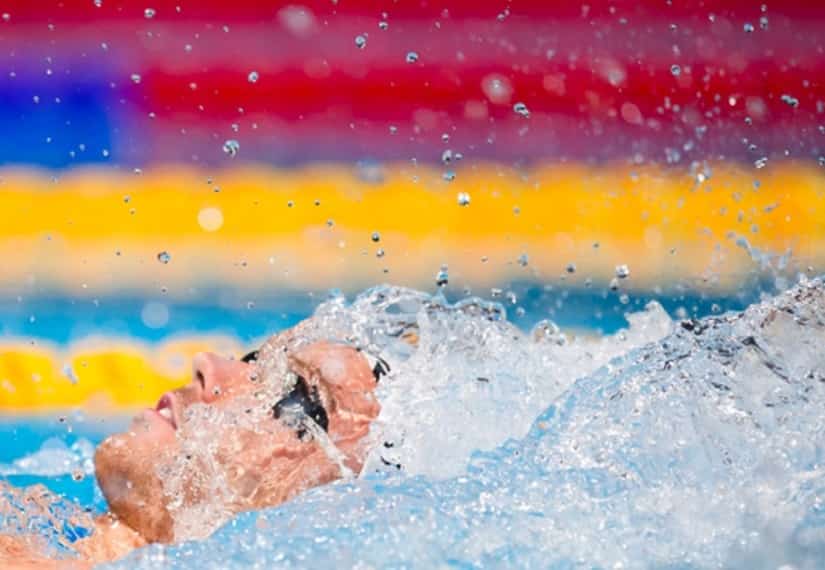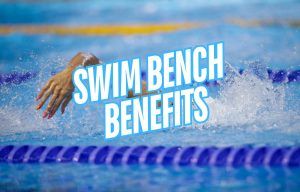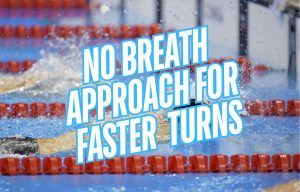
How to Improve Your Pacing Skills
Looking to up your pacing skills in the pool? Here are some actionable pacing tips and tools to help you master pace and your performance on race day.

If you truly want to get better in the pool you need to start recording and tracking your workouts. Here’s how to make the most of this process.
At some point you’ve thought about it. Or you tried keeping a record of your workouts before and didn’t see the value of it.
For whatever reason, you decided that writing out your swim practices at the end of a long day wasn’t worth the trouble. Felt too much like homework.
But if you are serious about wanting to achieve big things in the pool a log book is as crucial to your swimming as your soggy towel and goggles.
Before we get in to the ways that you can wield this tool to help you and your goals in the water (wherever they rank on the scale from learning to swim to Olympic champ), it’s important to note why it didn’t work for you last time, or why you might not have given this tool its due credit.
And it is this…
The number one mistake when swimmers log their workouts is only recording the sets and training volume.
Without the results, goals, lifestyle habits, effort rating, and the other details that give life to your training a log book is just a series of numbers. Without those details, without context, it’s just a series of sets and workouts.
Your log book is more than just a written history of your practices—it’s homebase for the things you want to achieve in the pool. It’s a moment of reflection after a tough workout. It’s a tool to gain the self-awareness necessary to become a better swimmer.
Here is how to make the most of this tool:
A typical swim practice is a labyrinth of splits, stroke rates, stroke counts, intervals and so on.
There’s a more numbers there than a phone book, and as a result, how you did can often get jumbled up as time passes.
To insure accurate results—and accurate progression and targets for future training sessions—write out how you did as soon as you can once the practice is completed.
A lot happens over the course of your swim practices.
There is the technique work, time spent strapped to your kick board working on improving your leg strength and endurance, the main sets, the warm-ups, warm-downs and so forth.
With so much going on it can be tempting to disregard the out of the pool stuff that plays a massive role in your performance in the water.
Use your log book to quickly monitor the following:
1. Sleep.
The importance of sleep for swimming is paramount. It’s one of the easiest ways to dramatically improve performance in the water, and yet, how many swimmers can tell you with any kind of certainty how much sleep they got this week? Last week? Last night?
When swimmers sleep lots they swim faster. Simple as that.
Tracking it will give you the nudge necessary to realize that maybe you aren’t sleeping as much as you could be, and push you to align your night-time so that you hit the hay a little earlier.
2. Nutrition.
How well do you think you eat? Probably pretty well, right?
Sadly, we aren’t so hot at guesstimating our food intake either. We underestimate the calorie count of crap food while inflating the value of that one vegetable that we had yesterday.
Proper nutrition will have you recovering faster, feeling better and more energetic, and even give you better skin.
You don’t necessarily need to start a food journal within the pages of your log book (but the power of doing so has been demonstrated repeatedly in studies), but at the least you should be able to see where bad food choices and bad swim practices intersect.
3. Stress.
Stress, you say?
Yup—stress plays a huge role in our recovery and overall performance in the pool. Even though we have come to accept stress as a part of everyday life, most of us aren’t really aware of the compounding effects it has until it’s too late.
Stress management is important, and your log book can provide you with a way to make sure that you are staying on top of it. (Start with keeping a gratitude list within the pages of your log book—it’s benefits go far beyond the pool.)
Want to have more control over your swimming?
Start setting training and practice goals for yourself in the pages of your log book.
Granted, you probably have no idea what kind of main set madness your coach has planned for you tomorrow, but that doesn’t mean you can’t set yourself some mini goals:
And so on. Coach might be the one dictating the workouts, but you can be proactive about the “extras” that you want to work on.
A log book is a fantastic tool for helping swimmers get and stay motivated.
Not just the kind of short-term, flash-in-the-pan motivation that comes from a high energy song or an Instagram quote, but the deep, free-range, long-lasting motivation that is real.
How does this happen?
In a couple different ways:
First, it shows you how far you have come. There is something intrinsically stirring about seeing improvement in black and white.
Secondly, it provides the benchmarks and standards for progression, the ultimate motivator. Swimmers generally don’t get burned out from working too hard, they burn out from not improving.
I started my first log book when I was 11-years old. It was a little green binder full of loose leaf where I scribbled my workouts. A couple years later I graduated to an actual log book that was given to me by my coach—something I’ve held onto since then with great nostalgia.
A log book, when used properly, is so much more than a bunch of swim practices. It’s a record of the effort and energy you have given to the sport. It’s a written testament to the fact that you can accomplish great things in practice.
And it’s the ultimate tool for long term motivation (and we all know how long the swim season can be).
Crack a fresh notebook, pick up a copy of YourSwimBook, or start writing out your workouts in your smart phone—whatever the case start journaling your swim practices and level up your swimming.

Olivier Poirier-Leroy Olivier Poirier-Leroy is the founder of YourSwimLog.com. He is an author, former national level swimmer, two-time Olympic Trials qualifier, and swim coach.
✅ Free shipping on Orders over $49
✅ Price Match Guarantee
✅ Best selection of gear for training and competition
✅ Fast and Easy Returns

“This is the best book I have ever seen concerning mental training.” — Ray Benecki, Head Coach, The FISH Swim Team


Looking to up your pacing skills in the pool? Here are some actionable pacing tips and tools to help you master pace and your performance on race day.

Looking for tips on how to use a drag chute for improved swim performances? Read on for some proven tips, sets, and pointers for training with a chute.

Ready to take your swimming to the next level? Here are seven ways that a drag chute can help you become a better and faster swimmer.

Wondering if a swim bench can help improve your swimming? Here are six benefits of swim benches for better technique, more power, and faster swimming.

Not breathing into the walls is one of the fundamental skills developing swimmers are taught. Here is how powerful a no-breath approach is for turn and swim speed. Strong training habits are something swimmers hear a lot about from their earliest days of their competitive swimming careers. The greatest hits

Drills with a swim snorkel are one of the best ways to maximize engagement and skill development. Here are five swim snorkel drills to try for faster swimming.
SITE
SHOP
GUIDES

LANE 6 PUBLISHING LLC © 2012-2025
Join 33,000+ swimmers and swim coaches learning what it takes to swim faster.
Technique tips, training research, mental training skills, and lessons and advice from the best swimmers and coaches on the planet.
No Spam, Ever. Unsubscribe anytime.
